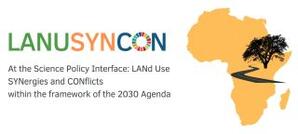Ines Jendritzki

Research Title:
Global risk of emerging social-ecological land use conflicts: A modelling approach
Contact: I.Jendritzki@gmx.de
Abstract:
The ongoing growth in social metabolism entails major challenges for the global quest for a more sustainable and equitable future. The excessive and thus unsustainable use of limited natural resources and ecosystem services remains to be an unsolved problem. At the same time, environmental benefits and costs that can be associated to current modes of production and consumption are unevenly distributed, frequently following already established patterns of inequality and creating environmental injustice at global and local scale. When environmental injustices are addressed by affected populations and requests for a more even distribution of environmental cost and benefit sharing become louder, ecological distribution conflicts (EDCs) manifest. The Environmental Justice Atlas (EJ Atlas) documents such cases of EDCs on a global scale and distinguishes them according to different categories of economic activity. The EJ Atlas is a work in progress with new cases being added almost every day. As of January 2022, the EJ Atlas reports more than 3,500 cases of socio-environmental conflicts. Though, only the most prominent conflict cases are reported and thus the total number of EDCs remains unknown and therewith also the real scope of environmental injustice. Based on data of known conflicts of the category Biomass and Land Conflicts and data for potential driving variables for these, Ines’ research aims to model the potential global distribution of environmental conflicts that can be linked to biomass production and different types of land use. For that, she applies the maximum entropy modelling approach Maxent that is typically used to model the distribution of species, but gradually finds application also in other research areas. The resulting predictions aim to reveal areas where conflicts might already take place but are not reported, and identify regions where conflicts are prone to occur. The research can serve as blueprint in the development of a warning system for environmental conflicts to inform affected stakeholders and policy makers to anticipate and mitigate negative impacts from such projects on vulnerable communities and hence achieve sustainable development for all.




